Living with diabetes, whether type 1 or type 2, means managing more than numbers. It means noticing how the body, brain, and emotions are deeply connected.
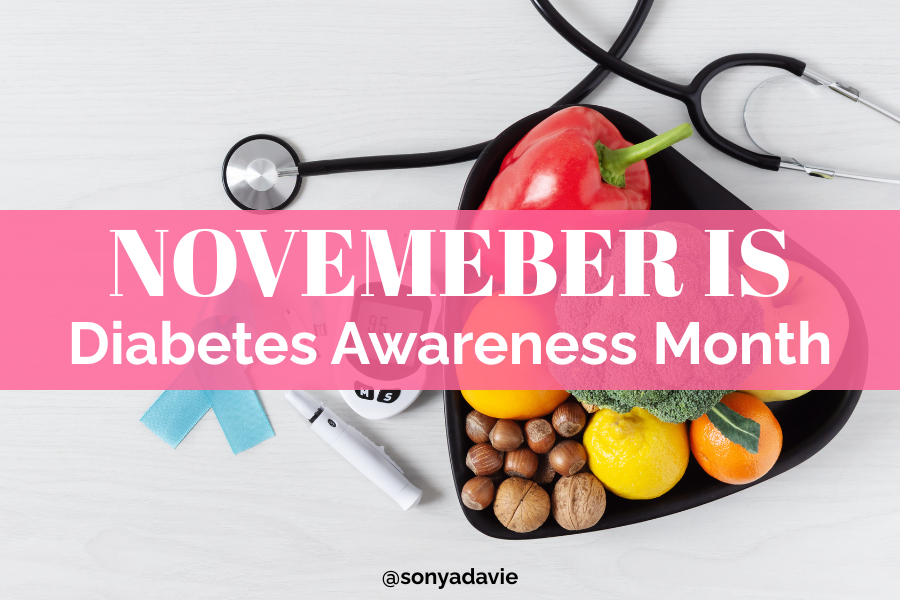
One often-overlooked aspect is how elevated or fluctuating blood sugar levels can mimic, trigger, or intensify anxiety and depressive symptoms.
This Diabetes Awareness Month, let’s explore how unmanaged diabetes, especially when it leads to hyperglycemia (high blood sugar) or hypoglycemia (low blood sugar), can influence mental well-being, why the overlap matters, and what we can do to restore balance.
Why the Link Between Diabetes and Mental Health Matters
People living with diabetes face a much higher risk of mental-health challenges than the general population.
The Centers for Disease Control and Prevention (CDC) reports that individuals with diabetes are two to three times more likely to experience depression. (Source)
A global International Diabetes Federation (IDF) survey revealed that 77% of people with diabetes reported anxiety, depression, or another mental-health condition related to their diagnosis. (Source)
Studies of people with type 2 diabetes (T2DM) show that approximately 28% experience depression and 14% live with anxiety. (Source)
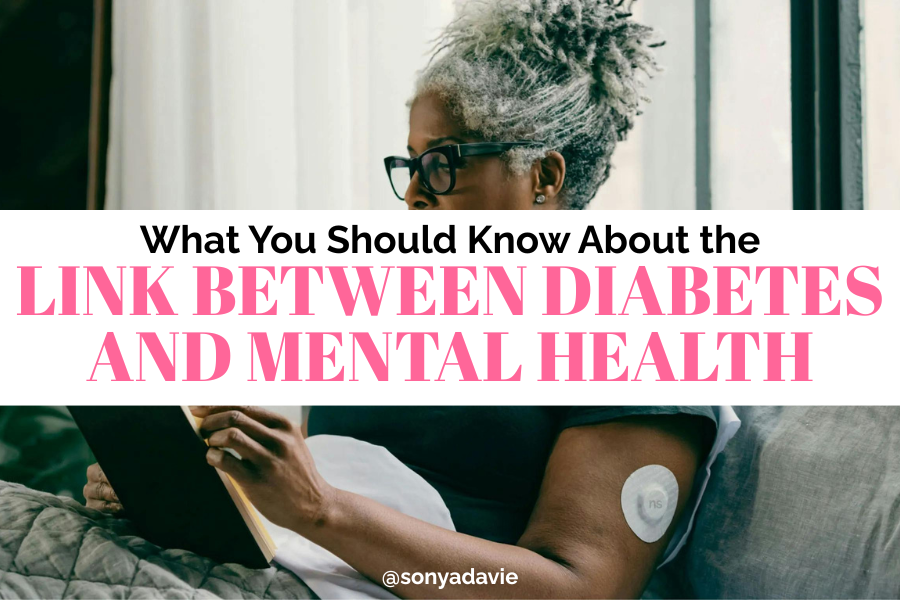
These numbers show that mental-wellness strategies aren’t optional in diabetes care; they’re essential.
What Happens When Blood Sugar Is High or Unstable?
Both hyperglycemia (high blood sugar) and hypoglycemia (low blood sugar) affect the body and brain in ways that can overlap with anxiety or depression. Sometimes, what feels like “low mood” or “nervousness” may actually be related to blood-sugar dysregulation.
Hyperglycemia and the Brain
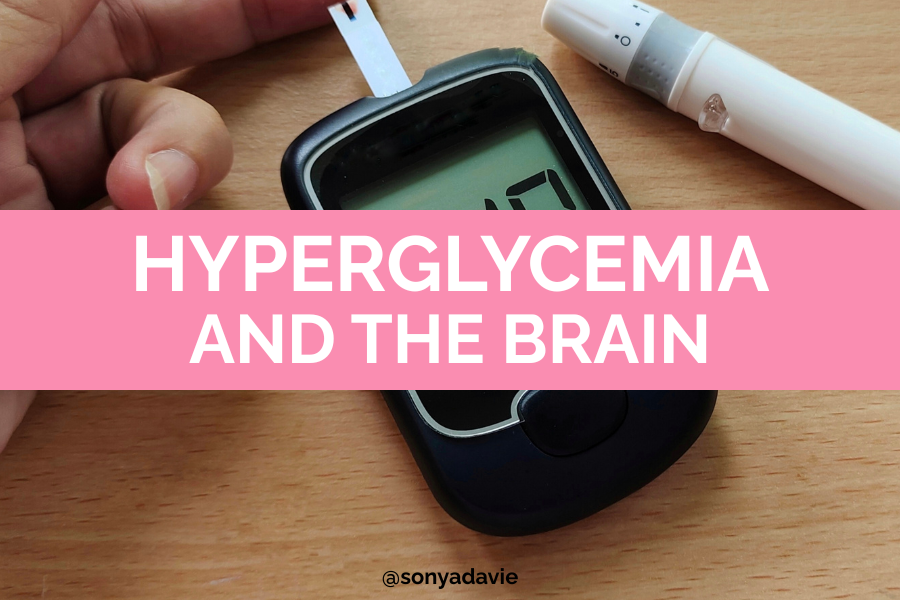
When blood glucose stays elevated:
- Research shows that greater glycemic variability, large swings in blood sugar, is linked to worse mood, higher anxiety and depression scores, and lower quality of life. (Source)
- Higher HbA1c levels (a measure of long-term blood sugar) often predict stronger depressive or anxious symptoms in people with diabetes.
- Because the brain relies on glucose for fuel, chronic hyperglycemia can impair mood, cognition, and nervous-system regulation.
When blood sugar remains high, people often feel fatigued, irritable, foggy-headed, or sluggish, symptoms that can look like depression. They may feel emotionally “off” without realizing the blood-sugar link.
Hypoglycemia and Anxiety or Depression Symptoms
Low blood sugar triggers stress hormones such as adrenaline and cortisol, creating sensations that mirror panic or anxiety: shakiness, racing heartbeat, sweating, irritability, and confusion.
For example, one study found that people who don’t recognize the warning signs of hypoglycemia report more anxiety and depressive symptoms, particularly those with type 1 diabetes. (Source)
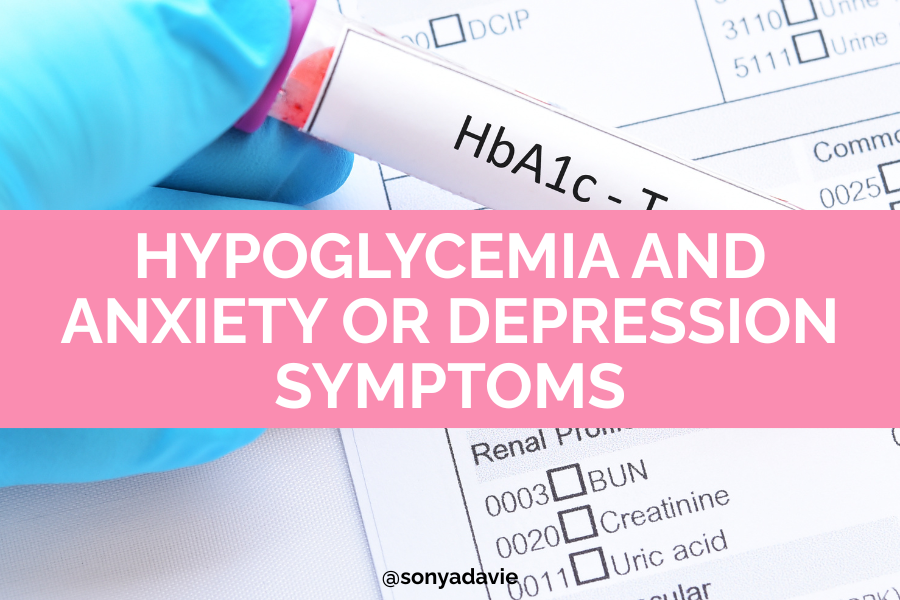
Research also suggests that recurrent low-blood-sugar episodes can also disrupt brain regions, such as the amygdala, that regulate emotion.
Thus, someone might think they’re experiencing anxiety or a panic attack when their blood sugar is actually low. Similarly, repeated lows can lead to fatigue, frustration, and emotional exhaustion.
The Confusion: Depression, Anxiety, or Blood-Sugar Effects?
Because symptoms overlap, it’s easy to misinterpret what’s happening:
Hyperglycemia → fatigue, mental slowing, and apathy → can be mistaken for depression
Hypoglycemia → tremors, heart palpitations, fear, and irritability → can feel like anxiety or panic
Blood-sugar swings → mood shifts, irritability, and brain fog → can mimic mood disorders
That’s why it’s crucial for both individuals and providers to ask:
Could these mood symptoms be partly or entirely driven by blood-sugar imbalance?
Are we addressing the underlying glycemic dysregulation, or just the emotional symptoms?
Why Blood-Sugar Imbalance and Anxiety/Depression Go Hand-in-Hand
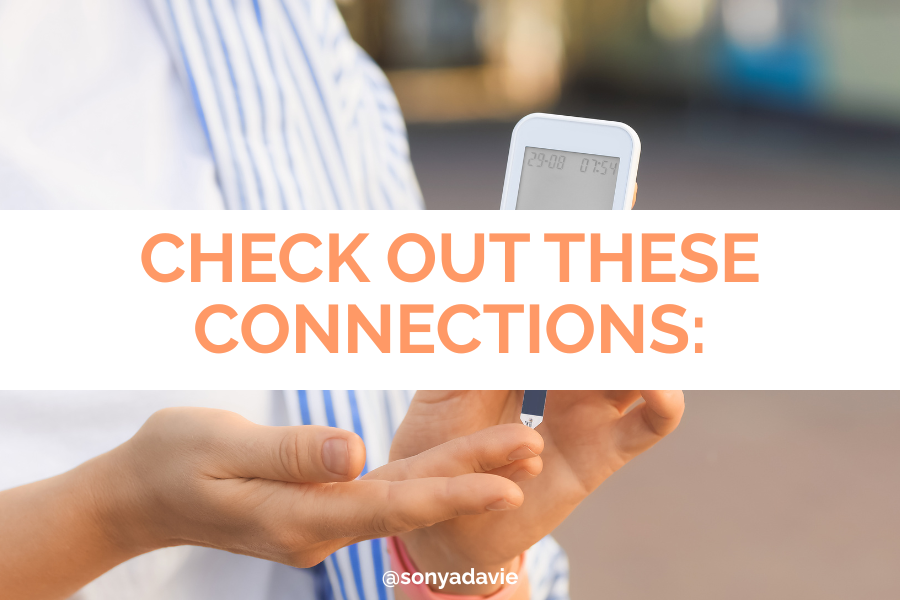
- Mental-health conditions like depression can increase the risk of poor glycemic control, leading to more frequent hyper- or hypoglycemic events.
- Conversely, blood sugar extremes and fluctuations themselves are associated with higher rates of anxiety and depression.
- The constant vigilance, checking glucose, managing medication, worrying about complications, creates “diabetes distress,” a form of stress distinct from general anxiety.
- Sleep issues, other health conditions, and the emotional toll of daily management can intensify both blood-sugar instability and mood challenges.
Simply put: The biology (blood sugar affecting brain chemistry), the psychology (living with a chronic condition), and the self-management demands all converge.
Practical Takeaways: Distinguishing Mood from Blood-Sugar Imbalance
As a mental wellness and health coach professional (and dance-fitness instructor!), I often remind clients that awareness is the first step toward balance. Here’s how to help yourself tune in:
Signs Blood Sugar Imbalance May Be Driving Mood or Anxiety Symptoms
- Emotional changes appear or worsen around glucose-check times or after meals/exercise.
- Symptoms accompany physical cues: sweating, hunger, racing heart, or fatigue.
- Mood fluctuates quickly with changes in food, medication, sleep or inactivity.
- There’s known diabetes or pre-diabetes, and glycemic control is inconsistent (high HbA1c, frequent highs/lows, wide swings).
Strategies to Incorporate
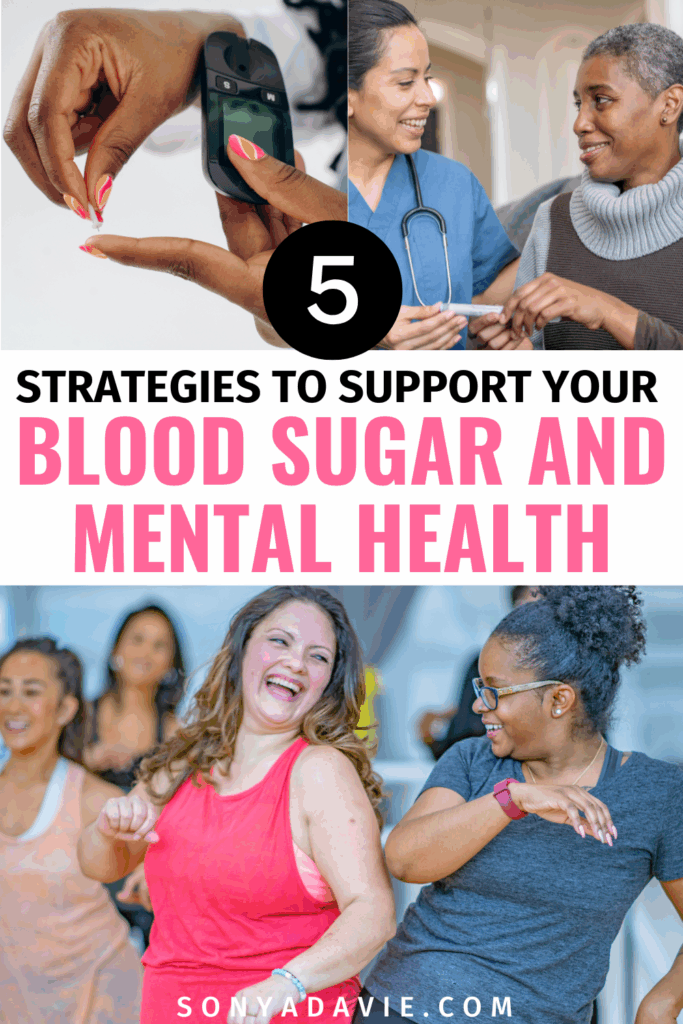
- Track your glucose and mood together: Try keeping a log of your blood-sugar readings alongside how you feel, your mood, energy, irritability, or anxiousness. It can reveal important patterns.
- Notice patterns: Pay attention to how your body and emotions respond. Ask yourself, “After that high reading, how did I feel?” or “When my blood sugar dropped, did I notice anxiety or panic?”
- Work with your care team: Partner with your diabetes-care providers to manage blood-sugar swings through nutrition, medication, sleep, and physical activity (yes, movement matters!).
- Support your stress response: Mindfulness, deep breathing, movement, or dance fitness can help calm your mind and support healthy blood-sugar control.
- Listen to your body: Mood changes may be a signal of underlying blood-sugar imbalances, not just stress or depression. Paying attention helps you address the root cause, not just the symptoms.
When to Seek Professional Support
- If you’re experiencing persistent anxiety, panic, or low mood and it’s interfering with your daily life, it’s a good idea to reach out to a mental-health professional. Depression is often underdiagnosed in people with diabetes, so getting support matters.
- If you’re noticing frequent highs or lows in your blood sugar along with mood changes or brain fog, make sure to coordinate closely with your endocrinologist or diabetes-care team.
Working together can help you manage both your emotions and your blood sugar more effectively.
My Final Thoughts….
This Diabetes Awareness Month, let’s widen the lens. Diabetes is more than blood sugar numbers. It’s about the body, the brain, and the emotions. When blood sugar is unmanaged, high or swinging, it can feel like anxiety, depression, or mood imbalance.
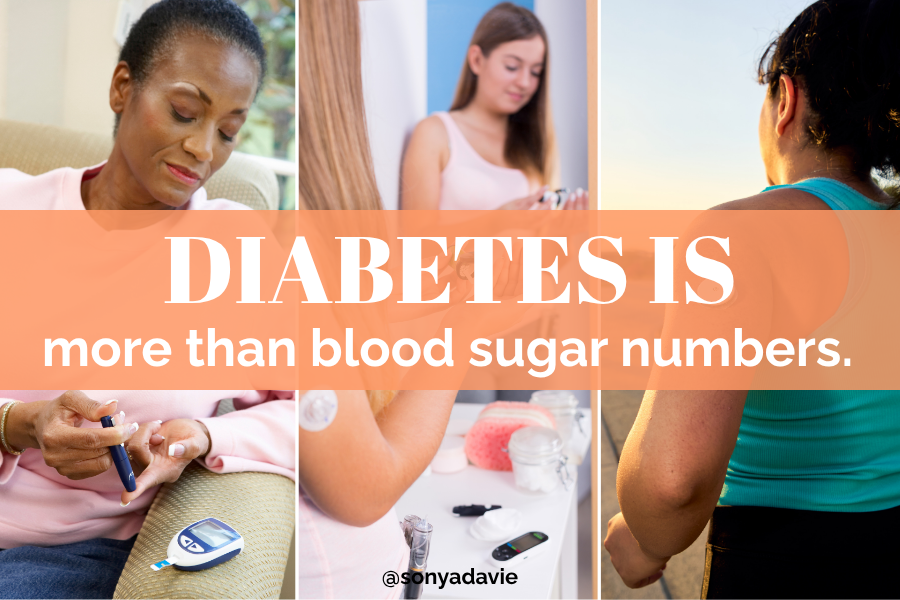
Recognizing that overlap gives clients and practitioners a powerful pathway: helping people feel better physically and mentally.
By integrating awareness of glycemic patterns with mental-wellness strategies, we support a fuller approach:
Move (through dance or gentle exercise).
Manage (your blood sugar with mindful habits).
Mind (your mental health and emotional resilience).
The result? Better health, less stress, stronger resilience.
+ show Comments
- Hide Comments
add a comment